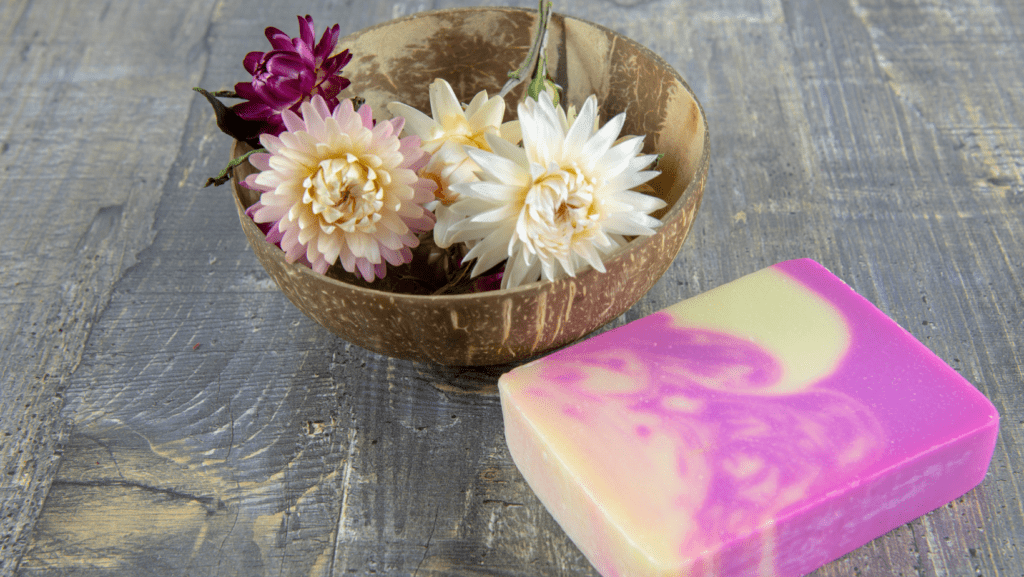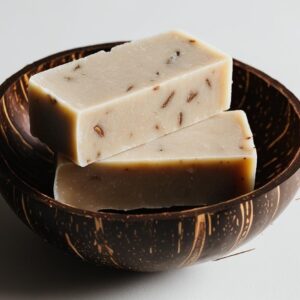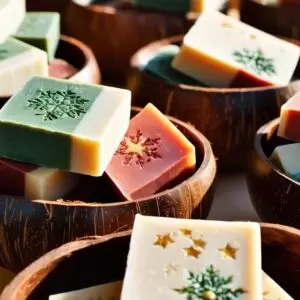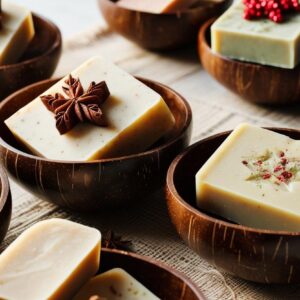Coconut Oil Soap
Coconut Oil Soap Recipes
Are you looking for a natural and effective way to take care of your skin? Look no further than coconut oil soap! This informative guide will walk you through the benefits and uses of coconut oil soap, and why it should be a staple in your skincare routine.
Coconut oil soap is made from the fatty acids found in coconut oil, which is known for its moisturizing and nourishing properties. It’s a gentle cleanser that can help remove dirt, oil, and impurities from the skin without stripping it of its natural oils. This makes it suitable for all skin types, including sensitive and dry skin.
One of the key benefits of using coconut oil soap is its ability to hydrate the skin. The natural emollient properties of coconut oil help to lock in moisture, leaving your skin feeling soft and supple. This can be especially beneficial for those with dry or dehydrated skin, as it provides an extra boost of hydration.
In addition to its moisturizing properties, coconut oil soap also has antibacterial and anti-inflammatory benefits. This can help to soothe and calm irritated skin, making it a great option for those dealing with conditions such as eczema or psoriasis. The antibacterial properties can also help to prevent breakouts and keep the skin clear and healthy.
Another advantage of coconut oil soap is its versatility. Not only can it be used on the face, but it can also be used on the body. Whether you’re looking to cleanse your face or lather up in the shower, coconut oil soap can effectively cleanse and nourish the skin from head to toe.
When shopping for coconut oil soap, it’s important to look for high-quality, natural options. Avoid soaps that contain harsh chemicals or synthetic fragrances, as these can be irritating to the skin. Instead, opt for soaps that are made with organic coconut oil and other natural ingredients.
To use coconut oil soap, simply lather it up in your hands or on a washcloth, then gently massage it onto damp skin. Rinse thoroughly with warm water and pat your skin dry. You’ll be left with clean, hydrated skin that feels refreshed and rejuvenated.
In conclusion, coconut oil soap is a wonderful addition to any skincare routine. Its moisturizing, antibacterial, and soothing properties make it a versatile option for all skin types. Whether you’re dealing with dryness, irritation, or simply want to maintain healthy skin, coconut oil soap is a natural and effective choice.
Give it a try and experience the benefits for yourself!
Coconut Oil Soap
Are you looking for a natural and eco-friendly alternative to commercial soaps? Look no further than coconut oil soap! Making your own coconut oil soap is not only fun and rewarding, but it also allows you to control the ingredients and customize the scent to your liking. In this blog post, we will guide you through the process of making coconut oil soap from scratch, and provide you with some simple recipes to get you started.
Why Coconut Oil?
Coconut oil is a popular choice for soap making because it produces a rich lather and has excellent cleansing properties. It is also moisturizing and gentle on the skin, making it suitable for all skin types, including sensitive skin. In addition, coconut oil is readily available and relatively inexpensive, making it an ideal ingredient for homemade soap.
Basic Ingredients for Coconut Oil Soap
Before we get into the recipes, let’s go over the basic ingredients you will need to make coconut oil soap:
1. Coconut oil: This will be the main ingredient in your soap and will provide the cleansing and moisturizing properties.
2. Lye (sodium hydroxide): This is a key ingredient in soap making, as it is what causes the oils to saponify and turn into soap.
3. Water: You will need water to dissolve the lye.
4. Essential oils (optional): If you want to add fragrance to your soap, you can use essential oils such as lavender, peppermint, or citrus oils.
5. Additional additives (optional): You can also add other ingredients such as herbs, spices, or exfoliants to customize your soap.
Safety First!
Before we dive into the recipes, it’s important to emphasize the importance of safety when working with lye. Lye is a caustic substance and can cause serious burns if not handled properly. Be sure to wear protective gear such as gloves and goggles, and work in a well-ventilated area when working with lye. Keep children and pets away from your workspace, and always add lye to water (not the other way around) to avoid splashing.
Recipe 1: Basic Coconut Oil Soap
This simple recipe is a great starting point for beginners and only requires three ingredients. It produces a gentle and moisturizing soap that is perfect for everyday use.
Ingredients:
– 500g coconut oil
– 138g lye
– 320g water
– Essential oils (optional)
Instructions:
1. Weigh out the coconut oil and heat it in a large pot until it is completely melted.
2. In a well-ventilated area, carefully add the lye to the water, stirring until it is fully dissolved. Allow the lye solution to cool to around 100°F.
3. Once the lye solution and melted coconut oil have cooled to a similar temperature (around 100°F), carefully pour the lye solution into the pot of coconut oil.
4. Use a stick blender to mix the ingredients together until they reach trace, which is when the mixture thickens to a pudding-like consistency.
5. If using essential oils, add them to the mixture and stir well.
6. Pour the soap mixture into molds and cover with a towel or blanket to insulate.
7. After 24-48 hours, unmold the soap and cut it into bars. Allow the bars to cure for 4-6 weeks before using.
Recipe 2: Exfoliating Coconut Oil Soap
If you want to add some exfoliating properties to your coconut oil soap, consider adding ground oatmeal or coffee grounds to the mixture. These natural exfoliants will help slough away dead skin cells, leaving your skin feeling smooth and refreshed.
Ingredients:
– 500g coconut oil
– 138g lye
– 320g water
– 1/4 cup ground oatmeal or coffee grounds
– Essential oils (optional)
Instructions:
Follow the same instructions as Recipe 1, but add the ground oatmeal or coffee grounds to the mixture before pouring it into molds.
Recipe 3: Moisturizing Coconut Oil Soap
For an extra moisturizing boost, consider adding shea butter or cocoa butter to your coconut oil soap. These luxurious butters will help nourish and hydrate the skin, making this soap perfect for dry or winter skin.
Ingredients:
– 400g coconut oil
– 100g shea butter or cocoa butter
– 138g lye
– 320g water
– Essential oils (optional)
Instructions:
1. Melt the coconut oil and shea butter/cocoa butter together in a large pot.
2. In a well-ventilated area, carefully add the lye to the water, stirring until fully dissolved. Allow the lye solution to cool to around 100°F.
3. Once the lye solution and melted oils have cooled to a similar temperature (around 100°F), carefully pour the lye solution into the pot of oils.
4. Follow steps 4-6 from Recipe 1.
5. Pour the soap mixture into molds and cover with a towel or blanket to insulate.
6. After 24-48 hours, unmold the soap and cut it into bars. Allow the bars to cure for 4-6 weeks before using.
Get Creative!
Once you’ve mastered the basic recipes, feel free to get creative and experiment with different ingredients and techniques. You can try adding colorants, swirls, or layers to your soap for a visually stunning result. You can also mix and match different essential oils to create unique scent combinations that suit your preferences.
Making your own coconut oil soap at home is a fun and fulfilling experience that allows you to create personalized, natural products for yourself and your loved ones. By following these simple recipes and safety precautions, you can enjoy the benefits of homemade coconut oil soap while minimizing your exposure to harsh chemicals found in commercial soaps.
So why not give it a try? Get your creative juices flowing and start making your own coconut oil soap today!
Shop Coconut Bowls
Coconut oil soap is made from the fatty acids found in coconut oil, which is known for its moisturizing and nourishing properties. It’s a gentle cleanser that can help remove dirt, oil, and impurities from the skin without stripping it of its natural oils. This makes it suitable for all skin types, including sensitive and dry skin.
One of the key benefits of using coconut oil soap is its ability to hydrate the skin. The natural emollient properties of coconut oil help to lock in moisture, leaving your skin feeling soft and supple. This can be especially beneficial for those with dry or dehydrated skin, as it provides an extra boost of hydration.
In addition to its moisturizing properties, coconut oil soap also has antibacterial and anti-inflammatory benefits. This can help to soothe and calm irritated skin, making it a great option for those dealing with conditions such as eczema or psoriasis. The antibacterial properties can also help to prevent breakouts and keep the skin clear and healthy.
Another advantage of coconut oil soap is its versatility. Not only can it be used on the face, but it can also be used on the body. Whether you’re looking to cleanse your face or lather up in the shower, coconut oil soap can effectively cleanse and nourish the skin from head to toe.
When shopping for coconut oil soap, it’s important to look for high-quality, natural options. Avoid soaps that contain harsh chemicals or synthetic fragrances, as these can be irritating to the skin. Instead, opt for soaps that are made with organic coconut oil and other natural ingredients.
To use coconut oil soap, simply lather it up in your hands or on a washcloth, then gently massage it onto damp skin. Rinse thoroughly with warm water and pat your skin dry. You’ll be left with clean, hydrated skin that feels refreshed and rejuvenated.
In conclusion, coconut oil soap is a wonderful addition to any skincare routine. Its moisturizing, antibacterial, and soothing properties make it a versatile option for all skin types. Whether you’re dealing with dryness, irritation, or simply want to maintain healthy skin, coconut oil soap is a natural and effective choice.
Give it a try and experience the benefits for yourself!
Connect With Us On Social Media
@BuddhaBowlsOrg
Instagram
Facebook
Pinterest
Youtube
Twitter
Coconut Oil Soap
Course:
Prep Time:
Cook Time:
Total Time:
Servings:
Ingredients
-
()
Instructions
-
()




